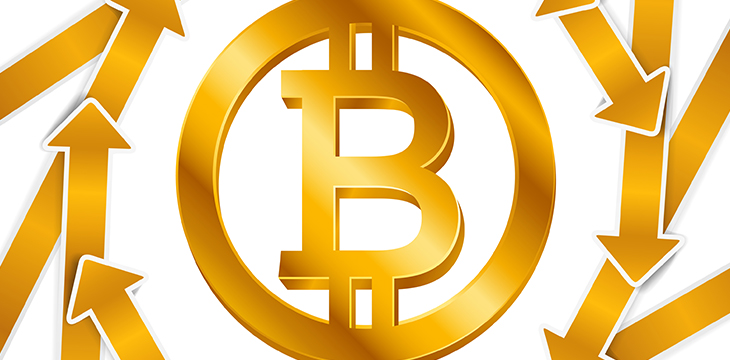|
Getting your Trinity Audio player ready...
|
‘Is there a crypto bubble?’ This, and variations thereof, was one of the most common headlines in 2017 and even today. When you hear the words ‘crypto’ and ‘bubble,’ you might not think there’s something fundamentally either-or between them. Yet the only reason an unsustainable bubble could emerge is through the inflation of fiat, which cryptocurrencies may eventually supplant.
A monetary phenomenon
The principle of price increases being tied to increases in money supply is most associated with Milton Friedman, yet monetary manipulation has long been recognized as significant to people’s spending behaviors, from Copernicus and the 16th-century School of Salamanca onwards.
What isn’t as commonly discussed is that increased units of money give the illusion of more resources than exist, to the point of destroying capital if the process continues. This part is emphasized by those who call themselves ‘Austrians’ regardless of their actual nationality.
But, stable supply or slow growth of money leads to higher real wages and a limiting of spending sprees. And that’s one of numerous potential benefits available through blockchain technology.
Sure, keeping wealth in digital form has its risks, but these must be weighed against storing wealth under a mattress or tucked in a bank. And there’s no reason that not more than one option is taken. Hedging beyond one’s dispositions is still prudent.
Theory
The business cycle theory reached its mature development in the writings of Ludwig von Mises and Friedrich Hayek during the first half of the 20th century. And the theory is alive and well. Bitcoin has its part in revealing the dangers of inflationary policies to capital—and consumer-goods’ industries, which are affected differently in the various stages of the cycle.
Basically, inflationary ‘stimulus’ goes through the economy in a way that ‘boom’ levels for both production and consumption could not be maintained indefinitely. This is observed in an eventual rise in unemployment, and ‘a fall in aggregate demand,’ not to mention, the unveiling of numerous scams that had taken advantage of the easy money.
This is the depression, the point where real wages could rise once more if expansionary interventions are abated.
The Mises-Hayek theory is the framework by which we understand events as disparate in time as tulip mania, the Great Depression, the 1990s Asian crisis, the U.S. housing crisis 10 years ago, and yes, the ongoing crypto bubble, where we can expect not all ventures to pan out.
Competitive currencies
Hayek wrote about the ‘denationalisation of money’ in the 1970s, anticipating ‘competing currencies’ that keep in check inflationary practices, though he probably didn’t think it would have anything to do with block sizes and doges.
In the introductory note to his book on the subject, he says: “I strongly feel that the chief task of the economic theorist or political philosopher should be to operate on public opinion to make politically possible what today may be politically impossible.” Four decades later, and we’re a bit closer to the possibility he sketches.
So theory will always have its significance, even as the likes of Nassim Taleb would stress ‘practice over theory’—which is itself a theory. I suppose Taleb meant ‘good practice over bad theory.’ After all, a theory is good precisely because it takes into account the practical.
By doing, we forego
I confess to falling for the same biases many did against cryptocurrency, particularly Bitcoin, when I first read of it on June 10, 2011. Yeah, it was significant enough to note.
Back then, it just wouldn’t fit in my limited definition of money as naturally originating in society. Yet when I finally got it, it wasn’t so much the definition that needed change, but my application of it. Simply put: if it works as money, it is money.
Back then, we thought taming inflation meant demanding for senators and congressmen to end this or that. Little did we know that change was not about attacking, but looking away.
Who would have thought that its underlying technology would have such direct implications to solving so many other problems, much of which involve the cost of fashioning contracts?
Paradigm shift
If the Keynesian order knows what Bitcoin really represents… there’s still probably little they’d do about it. Why would they, when they stand to benefit as well, whether as consumers or as public officials?
Besides, there’s no actual ‘Keynesian order.’ There’s just people, like Christine Lagarde, trying to figure out what works, with conflicts of interest every step of the way. I suspect a significant number of professors continue teaching IS-LM ironically more than anything now.
Inflation re-redefined
Blockchain as a record keeper, a value keeper, just works better than anything offered in traditional textbooks, the ones that define inflation as primarily a phenomenon of prices.
Which brings me to another point. As crypto is observed to be exchangeable with more and more goods and services, we could expect ‘inflation’ to be once more defined, simply and directly, as monetary increases, rather than merely the symptom that is price increases. The change of definition during the 20th century reflects the way credit expansion was hidden by ‘stable prices’ which should have been falling.
And when prices of goods—not just those for computer hardware—tend to go down, we’ll wonder why the phenomenon of higher real wages was ever a threat to our way of life.
Final remark
Much of this is still a ways away. We can’t let it get in our heads to expect so much too soon, or fall for the pretense of knowledge. A technology is only as good as the people that use it. Yet we do have (some) knowledge, we do have (some of) the means. We must only be wary of giving special privilege to any one system, any one authority. Then we’ll have the future.

 02-18-2026
02-18-2026 




